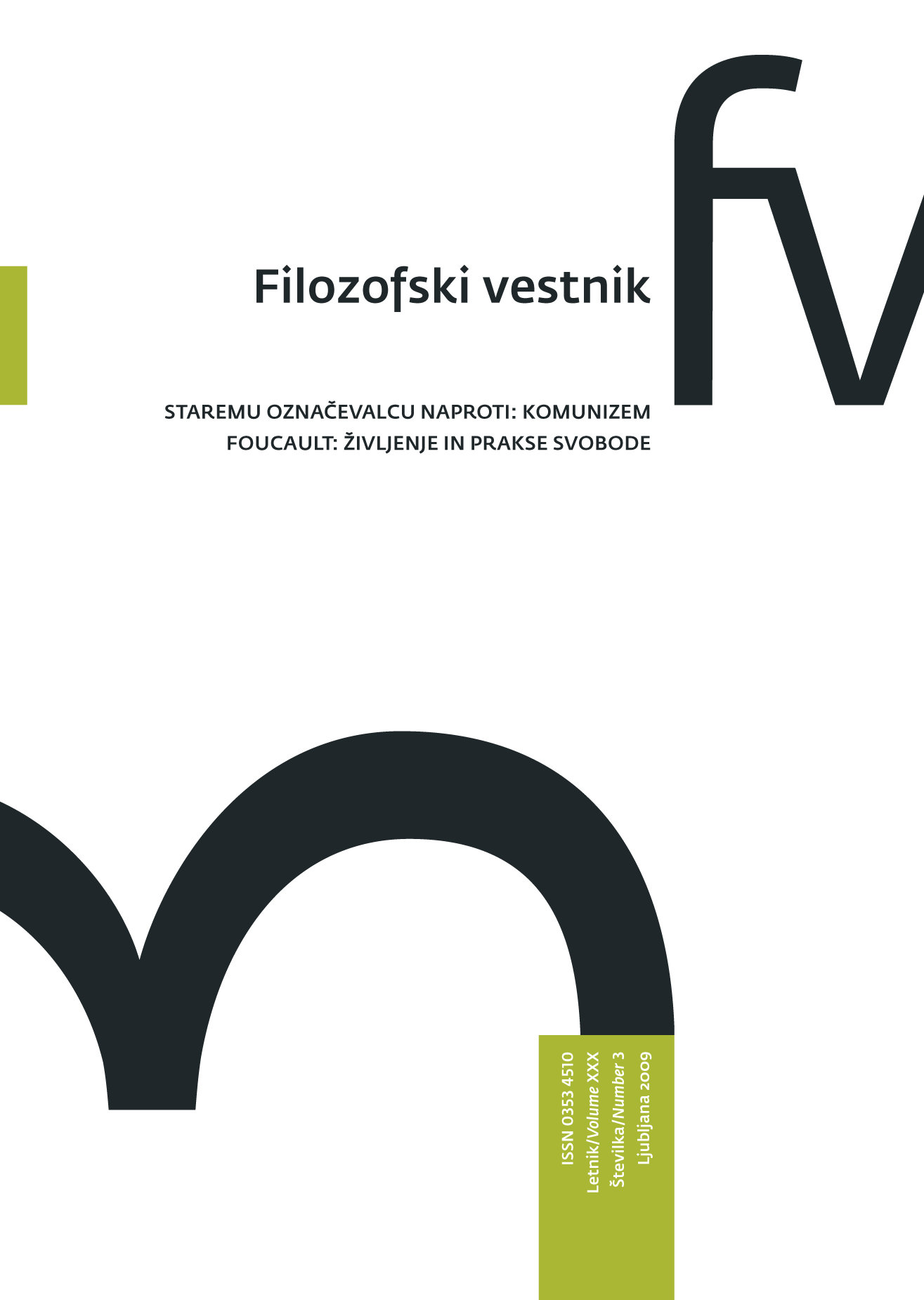Foucault kot nietzschejevski objektivni učenjak?
Ključne besede:
interpretacija, diskurz, oblast, vednost, Nietzsche, FoucaultPovzetek
Nietzsche v svojem delu izhaja iz diagnoze nezmožnosti oziroma krize interpretacije, ki jo postavi svetu svojega časa. Na to krizo je med drugim mogoče odgovoriti tudi z držo objektivnega učenjaka, ki mnoštvu nagonov, ki grozijo, da bodo sodobnega subjekta raztrgali, postavi nasproti zahtevo po koncu prisvajanja, po golem objektivnem, zrcalnem opisu. Podoben očitek nekateri interpreti naslavljajo na Foucaulta in njegov projekt arheologije, toda izkaže se, da se arheolog in nietzschejevski objektivni učenjak razlikujeta v tem, da prvi zahteva, da v polnosti izkusimo tujost diskurza, drugi pa svoj predmet vselej razume kot nekaj lastnega in domačega. V toliko sta si prej blizu drži foucaultovskega arheologa in nietzschejevskega „polifoničnega subjekta“, ki prav tako aktivno izkuša odpoved zmožnosti interpretacije in beganje med različnimi maskami-identitetami. Ta drža pa pri obeh generira tudi določeno paradoksno vednost, ki sicer ne uspe poenotiti subjekta, predstavlja pa prvi korak iz njegove ujetosti v oblastna razmerja.Prenosi
Podatki o prenosih še niso na voljo.
Prenosi
Objavljeno
2016-03-08
Kako citirati
Strniša, E. (2016). Foucault kot nietzschejevski objektivni učenjak?. Filozofski Vestnik, 30(3). Pridobljeno od https://ojs.zrc-sazu.si/filozofski-vestnik/article/view/4468
Številka
Rubrike
Foucault: Življenje in prakse svobode
Licenca
Avtorji jamčijo, da je delo njihova avtorska stvaritev, da v njem niso kršene avtorske pravice tretjih oseb ali kake druge pravice. V primeru zahtevkov tretjih oseb se avtorji zavezujejo, da bodo varovali interese založnika ter da bodo povrnili morebitno škodo.
Podrobneje v rubriki: Prispevki





